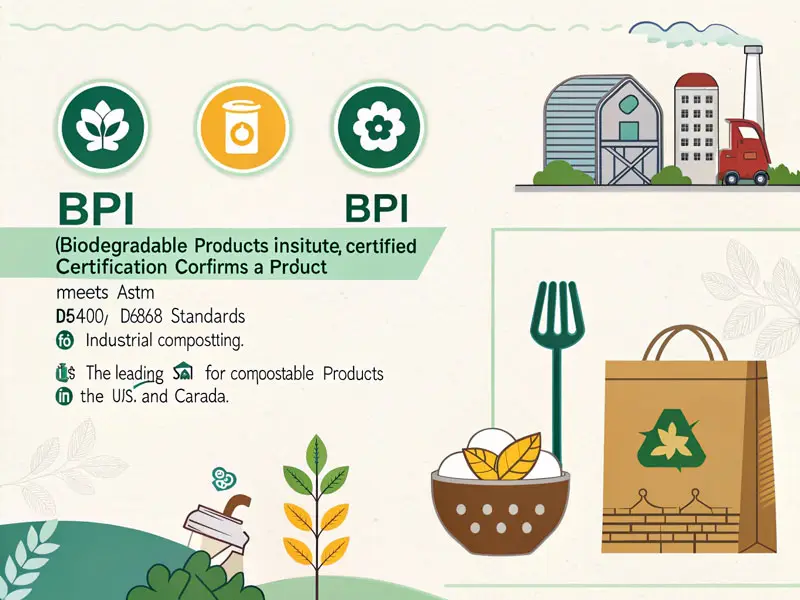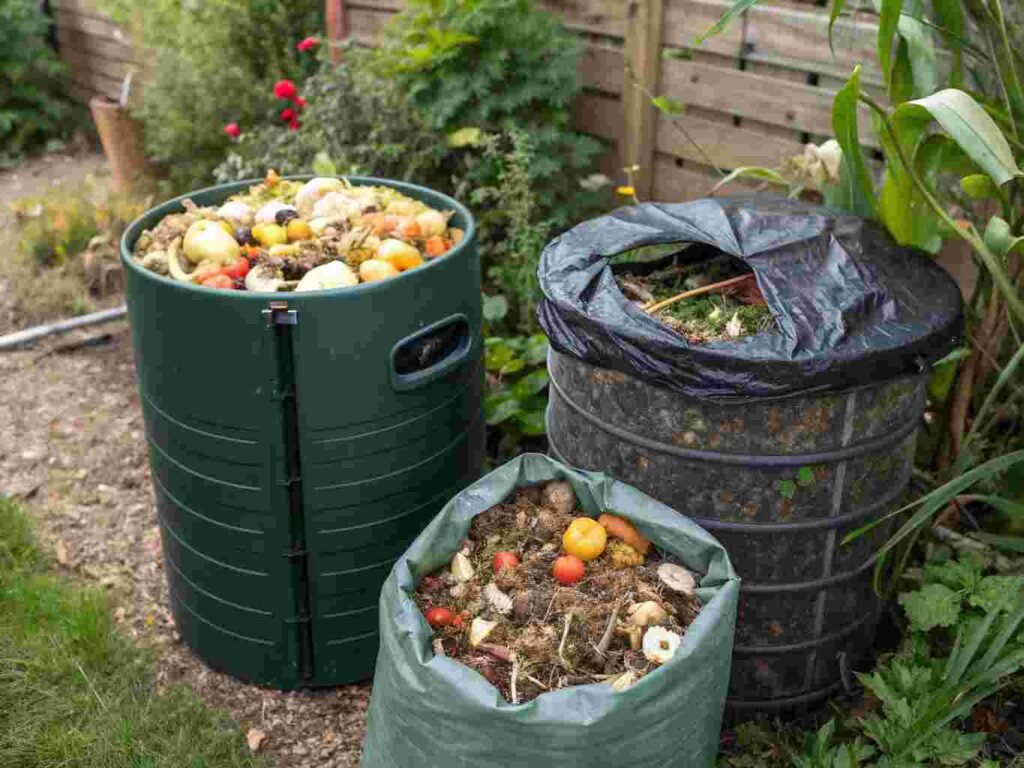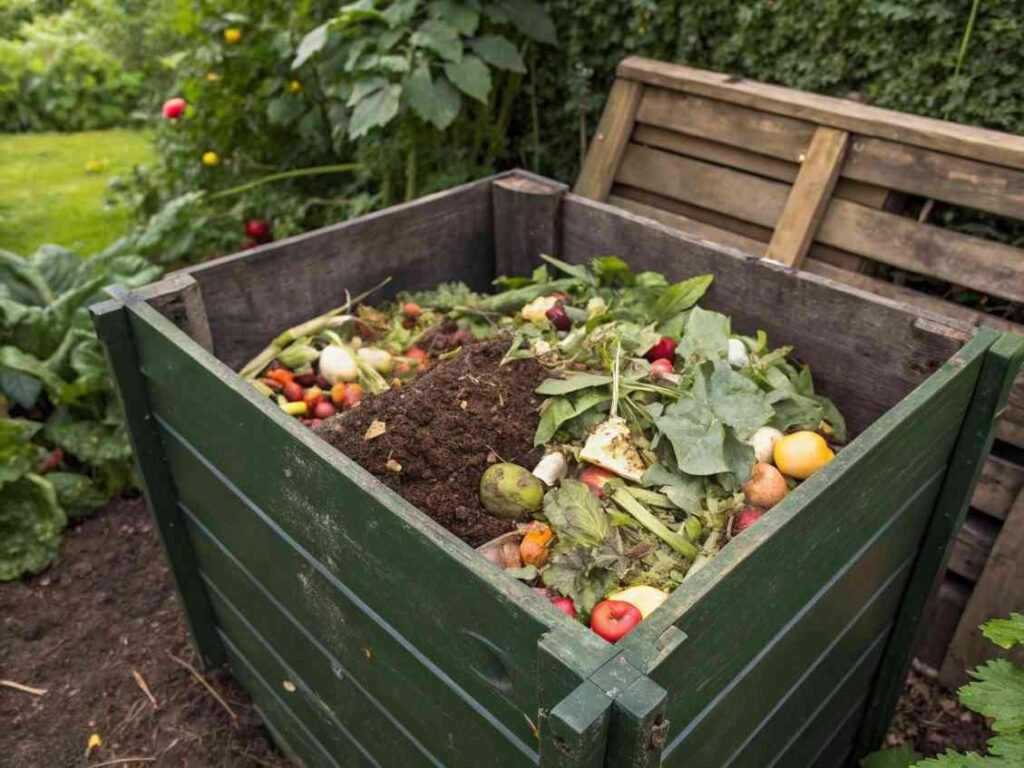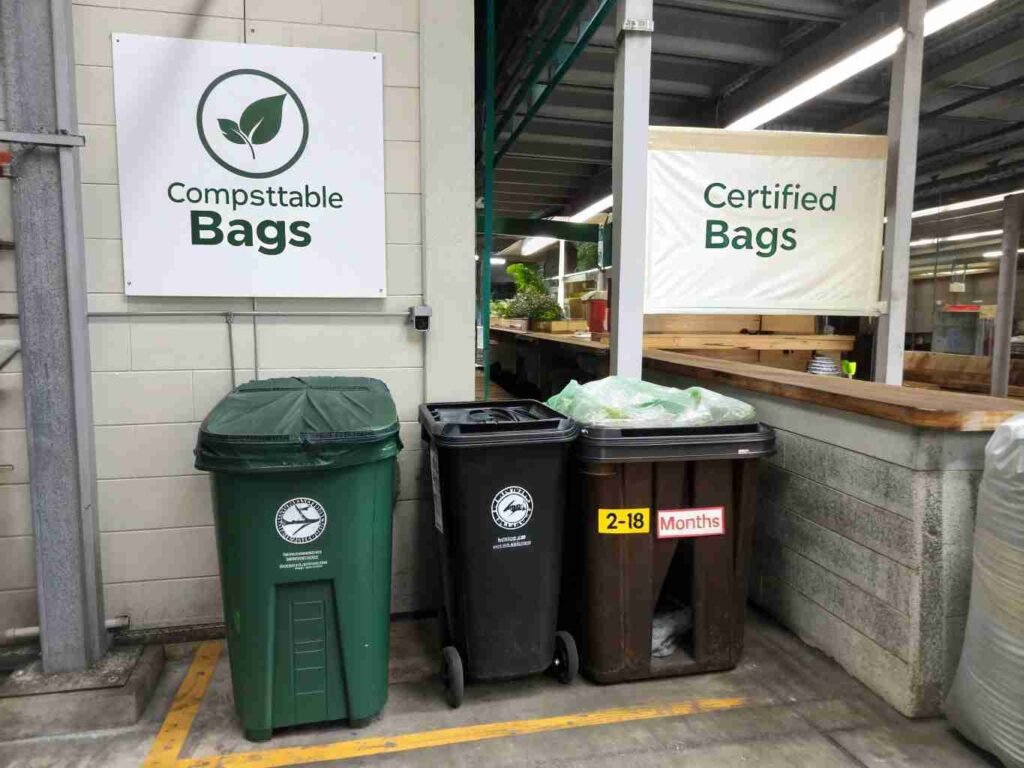As environmental concerns grow and regulations become stricter, businesses such as retailers, supermarkets and restaurants are turning to sustainable packaging solutions. BPI-certified compostable bags are a top choice for businesses looking to reduce their environmental footprint and meet consumer demand for eco-friendly products. As plastic bans continue to expand in the US and Europe, choosing the right compostable bags is essential to staying compliant and attracting environmentally conscious consumers.
This guide will help you understand the importance of BPI certification and how to choose the best compostable bags for your business.
What Are Bpi Certified Compostable Bags?
BPI certification, issued by the Biodegradable Products Institute, ensures that compostable bags meet rigorous standards for commercial composting, such as ASTM D6400 or D6868. These standards confirm that the bags will break down into non-toxic components in a commercial composting facility, leaving no harmful residues. Unlike biodegradable bags, which may only partially break down or require longer periods, compostable bags certified by BPI are designed to fully decompose in a controlled composting environment, typically within 90-180 days.
Another key aspect of BPI certified compostable bags are their PFAS-free composition. Per- and polyfluoroalkyl substances (PFAS), often called "forever chemicals," are harmful to the environment and human health. BPI certification ensures that bags are free of these chemicals, making them safer for composting and compliant with regulations in states like California and New York, where PFAS bans are in place.
Recommended articles:What is BPI Compostable Certification Meaning

Benefits of BPI Certified Compostable Bags
- Environmental Impact: These bags significantly reduce landfill waste and carbon emissions. By composting organic waste in certified bags, businesses help divert waste from landfills, supporting a circular economy.
- Regulatory Compliance: BPI certified bags meet stringent US and EU regulations, including bans on single-use plastics and PFAS. This ensures your business stays ahead of legal requirements.
- Brand Value: Eco-conscious consumers are more likely to support businesses that prioritize sustainability. Using BPI certified bags enhances your brand’s reputation and attracts environmentally aware customers.
Factors to Consider When Purchasing Bpi Certified Compostable Bags
When selecting BPI certified compostable bags, B2B buyers like retailers, supermarkets, and restaurants should consider the following factors:
- Size and Capacity: Available in a range of sizes, from 8-gallon bags for small waste bins to 33-gallon bags for commercial use, these bags cater to various needs, such as food waste collection or retail packaging.
- Customization: Many suppliers offer customizable options, such as printing your logo or brand message on the bags. This is ideal for supermarkets looking to reinforce their brand while promoting sustainability.
- MOQ and Pricing: Look for suppliers with low minimum order quantities (MOQ), such as 10,000 units, which is ideal for small retailers or businesses testing new products. Competitive bulk pricing ensures cost-effectiveness for large orders.
- Delivery: Fast and reliable global shipping (7-14 days to the US, Europe, or Australia) is crucial for businesses with tight schedules or high inventory turnover.

Types of BPI Certified Compostable Bags
BPI certification covers many bag types, including:
- Trash bags for food waste and organics
- Kitchen caddy liners
- Pet poop bags
- Compostable mailers for e-commerce
- Retail shopping bags
Businesses across food service, hospitality, retail, and e-commerce are switching to certified compostable packaging to meet both regulatory and consumer expectations.
BPI Certified vs. Biodegradable: What’s the Difference?
| Feature | BPI Certified Compostable Bags | Regular Biodegradable Bags |
|---|---|---|
| Decomposition Conditions | Requires commercial composting (high temperature & humidity) | May require specific environments (e.g., soil) |
| Time Required | Within 6 months | Several years or longer |
| End Products | Water, CO₂, organic compost | May leave microplastic residues |
| Certification Standards | ASTM D6400/D6868 | No unified standard |
Policy convenience:
California, Canada and other places have already mandated the use of BPI-certified bags to collect organic waste. For example, the city of Oakland stipulates that non-BPI-certified "compostable" bags must be treated as garbage.
How to Verify BPI Certification
Check the Certification Number: Authentic BPI certified products carry a unique certification number (e.g., #891053). Ask your supplier for this number and verify it on the BPI website.
Visit BPI’s Product Directory: The BPI website (bpiworld.org) offers a searchable database of certified products. Use this to confirm that your supplier’s bags are listed.
Request Documentation: Reputable suppliers provide certification documentation, including test reports or BPI approval letters, to prove compliance with ASTM D6400 or D6868 standards.
At Orizon Biomaterials, all of our compostable bags are BPI certified, and we support OEM, wholesale, and custom packaging solutions.

Choosing the Right BPI Certified Compostable Bags Supplier
Experience: Look for suppliers with a proven track record, such as Torise Biomaterials, which has 16 years of experience producing compostable bags.
Factory Capabilities: Verify that the supplier has robust manufacturing facilities. For example, a 20,000 m² factory with 16 production lines ensures scalability and quality control.
Samples and Customization: Request product samples to test durability and compostability. Ensure the supplier offers customization options, such as tailored sizes or branded printing, to meet your specific needs.

Where to Buy Eco-friendly Compostable Bags
1. Online Retailers
- Amazon: Offers a wide range of BPI certified brands like BioBag, Glad, and Hefty. Look for products labeled “BPI Certified” or check the BPI Product Catalog for verification.
- Net Zero Co.: Specializes in eco-friendly products, including BPI certified bags for home and commercial use.
- UNNI: Sells ASTM D6400-compliant bags in various sizes, with bulk options for businesses.
2. Wholesale Suppliers
- WebstaurantStore: Ideal for restaurants and caterers, offering bulk BPI certified bags at competitive prices (e.g., $50–$100 for 100–500 bags).
- Green Paper Products: Focuses on sustainable packaging, including BPI certified trash liners and food service bags.
3. Local Retail
- Grocery Stores: Chains like Whole Foods, Trader Joe’s, or Costco often stock BPI certified bags in their eco-friendly sections.
- Local Zero-Waste Stores: Many cities have specialty stores selling compostable products. Use Find a Composter to locate nearby suppliers.
4. Direct from Manufacturers
- Brands like BioBag and UNNI sell directly through their websites, offering subscription models for regular deliveries. This is ideal for businesses with consistent needs.
Buying Tips
- Compare Sizes and Prices: Smaller bags (3–13 gallons) are great for households, while larger ones (30–60 gallons) suit commercial use.
- Check Certification: Always verify the BPI logo or certification number to avoid greenwashing.
- Bulk Discounts: Wholesale options can reduce costs by 20–40% for large orders.
- Shipping Considerations: Factor in delivery times and costs, especially for international orders (e.g., Canada).
Conclusion
BPI certified compostable bags are the future of sustainable packaging, offering businesses a way to reduce environmental impact, comply with regulations, and appeal to eco-conscious consumers. By choosing the right size, customization options, and supplier, retailers, supermarkets, and restaurants can seamlessly integrate these bags into their operations.
Ready to make the switch? Explore our wholesale BPI certified compostable bags or contact us for a custom quote tailored to your business needs.
FAQ
How Do I Know If a Bag Is BPI Certified?
Look for the BPI logo on the packaging or check the product’s certification number in the BPI Product Catalog. Be wary of vague claims like “eco-friendly” without certification.
Can I Use BPI Certified Bags in My Home Compost?
Currently, most BPI certified bags are designed for industrial composting. Check the label for home composting suitability, or wait for BPI’s upcoming home compost certification.
Are BPI Certified Bags More Expensive Than Plastic Bags?
Yes, they typically cost 20–50% more due to sustainable materials and testing. However, bulk purchases and growing demand are reducing prices over time.
Do BPI Certified Bags Contain PFAS?
No, BPI certification requires products to be PFAS-free, ensuring safe compost for soil and crops.
What Happens If My Local Facility Doesn’t Accept BPI Certified Bags?
If your local composter excludes compostable plastics, use the bags for non-compostable waste (e.g., landfill-bound trash) or switch to paper bags for composting.
Related articles
- How to Compost at Home: A Beginner’s Guide
- Ultimate Guide to Compostable Certifications (BPI, TUV, ASTM D6400)
- What Is Industrial Composting





